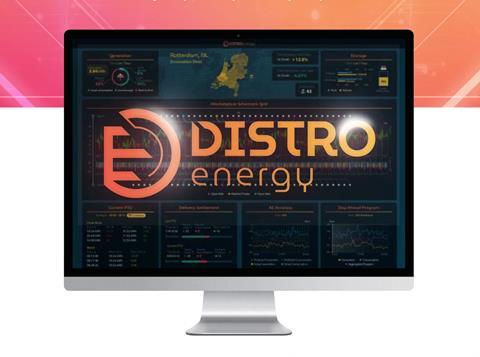32 companies at the Rotterdam Drydock Company (RDM) site in the port of Rotterdam have been busy testing the blockchain/artificial intelligence (AI) energy trading platform Distro.

S&P Global Platts and Blocklab (a subsidiary of the port of Rotterdam that specialises in blockchain technology) developed the Distro platform. It has been described as a solution to the challenges of microgrid renewable electricity – the main one being that these energy sources produce power intermittently.
Working with solar panels and a battery, the users have been able to trade energy they have produced themselves in a local market. AI systems predict the consumption and production patterns of individual electricity consumers, and trade kilowatt hours on the platform on the basis of those forecasts.
The price of electricity fluctuates with changes in supply and demand. Batteries responding to price buy and store excess on-site solar energy that is generated when consumption levels are low, to re-sell it to users when solar generation is low.
The port said that the initiative will help companies in the port to reduce energy costs by making better use of locally produced electricity, and by smoothing peaks in demand on the electricity grid. The project also fits in the ports’ goal of becoming carbon-neutral by 2050.
The testing demonstrated that the platform works and it would be prepared for commercial use in the coming months, said the port of Rotterdam.
“This pilot project is good for everyone: not only are energy prices fairer and more transparent, the costs of sustainable energy are reduced for clients,” said Nico van Dooren, new business and portfolio management director at the port of Rotterdam.
















